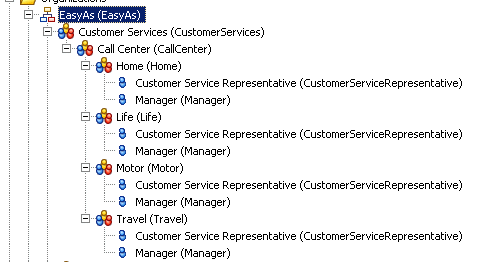Organization Units
An Organization Unit represents resources that are associated together because they fulfil a business need within the organization.
For example, an Organization Unit can be a department, project or location. Different Organization Unit Types are provided in the default Schema, and if it suits your organizational structure you can use them for different levels of organization or other different sorts of unit that might be present.
An Organization Unit is made up of Positions. A Position represents a set of responsibilities for a job of work to be performed in an Organization Unit. An Organization Unit can have many Positions.
Organization Units can be linked by relationships. These relationships can link Organization Units within the same Organization, or in different Organizations in the same Organization Model. (They do not link one Organization to another.)
Relationships can be hierarchical or otherwise. In the Organization Modeler diagram editor they are represented by Hierarchy or Association connections - see Hierarchies and Associations.
An example of a Customer Services Organization Unit that contains Sub Organization Units and Positions is shown below.
You can specify privileges and system actions for an Organization Unit. An example of a privilege might be that the Accounts Department can authorize expenses up to $500.
For each Organization Unit, there are various properties you can assign. For example, you can specify the location of the Organization Unit and how long it should exist for. See "Organization Unit Properties" in the TIBCO Business Studio Modeling User's Guide for more information.

